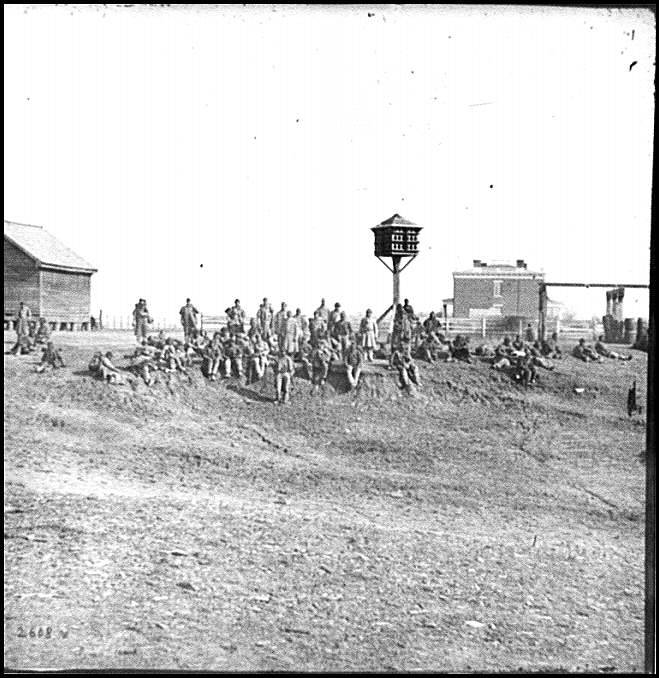
A FAMILY PAPER DEVOTED TO THE NEWS OF THE DAY IN SOUTH DANVERS (PEABODY), MASSACHUSETTS
January 6 – June 29, 1864 - Part VI


Fig. 5 Photograph of forty African-American soldiers standing on a slight hill at Aiken's Landing, Va., the Army of the James, June 1864 - April 1865. About the South Danvers Wizard About South Danvers (Peabody), Massachusetts
|
South Danvers Wizard,
5/4/1864,
p. 2/2
SOLDIER’S PAY – “One among the many causes that tend to discourage enlistments in our army, is the very great delay in the matter of paying soldiers their wages. We know of many cases of complaints in this respect. By the tenor of the soldier’s enlistment, he is entitled to his pay monthly, and by Army Regulations, soldiers’ wages are not to go unpaid more than two months at the farthest; yet it is well known that many regiments are not paid for six, eight or ten months. The men who fought at James Island, Fort Wagner and Oluster, have had no pay for about a year, as is stated by the Evening Post. We hear of several of our South Danvers men who have not been paid for six months, and we know that some families suffer great inconvenience on this account. The case referred to by Gen. Wilson in the Senate the other day, is certainly such as to call public attention to this great evil. The press should be forward in publishing the grievances of our soldiers, when they become known and seem like systematic wrongs. The soldier has practicably no tribunal to appeal to. Military laws and usages are such as to make it next to impossible for the private to obtain redress through the regular channels of military communication in those cases where the grievance is such as to implicate the superior officers in any general delinquency from which the particular complainant suffers no more than his fellows; though individual cases of suffering are generally listened to, and as a usual thing are cured as far as the inconveniences of service will allow. We have some time thought that the press were over cautious in not calling attention to certain notorious abuses practiced in the military department of government. Since this war began many a gross wrong has been righted by the influence of the press, which has carried home to the notice of the administration many things which would have been kept back months or years by the red tape of the department. Our colored soldiers, too, have been subjected to the most unconscionable treatment in regard to their pay. Not only have the government neglected to pay them at the time they agreed to, but they have attempted to put them off with less wages than was promised when they enlisted. General McClellan, at the beginning of the war, was guilty of putting things upon the wrong track in regard to this matter of paying soldiers. He did a great injury to the services as well as injustice to the soldier, when he suggested to the President, as far back as August, 1861, ‘that the exigencies of the Treasury may be lessened by making only partial payments to our troops when in the enemy’s country.’ As if the soldiers who enlisted that year for $13 a month, without a bounty, had no exigencies the government was bound to respect, and the rights of contract with the government but what could be annulled by a stroke of the pen. We trust the bill for equalizing the pay of white and colored soldiers which has just passed the House will partially remedy this evil.” |